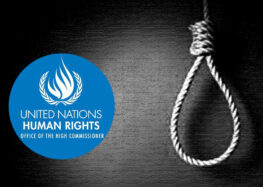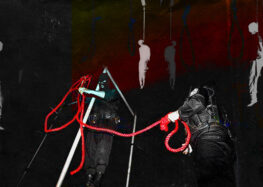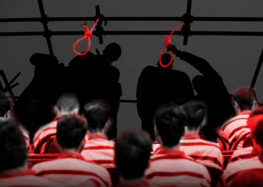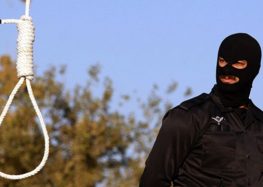Lawyer Says Client Should Have Been Sentenced to One Year In Prison, Not Death
Mohammad Ali Haj Aghaee’s death sentence on the charge of moharebeh (enmity with God) has been upheld by an appeals court in Tehran. His lawyer, Mehdi Hojjati, told the International Campaign for Human Rights in Iran, “He was accused of cooperating with the Mojahedin-e Khalgh Organization (MEK). In accordance with Islamic Penal Code, the Revolutionary Courts sentenced him to death. We appealed the ruling, arguing that the Supreme Court is qualified to review death sentence. The case was forwarded to an appeals court and Branch 54 upheld the sentence exactly as it was. The appeals court did not find it necessary to convene a session in order to invite us. When we learned that the appeals court had reached a decision, we realized that the lower court’s decision had been upheld.”
“We immediately asked for a re-trial from the Supreme Court. At the same time, the Supreme Court issued a ruling which placed them as the point of appeal for verdicts such as the death sentence. This ruling could not benefit Mr. Haj Aghaee, because it could not be applied retroactively. Currently, the case is under review by Judge Samimi in Branch 31 of the Supreme Court. As of my last follow-up a couple of days ago, a decision has not been made yet regarding our retrial request,” added Hojjati.
“From a legal point of view, this charge cannot be moharebeh. Article 183 of the Islamic Penal Code defines…mohareb to be someone who uses arms to intimidate people. He was not a member in a military branch of any organization. Especially because since the US invasion of Iraq, MEK has been disarmed and cannot be in the mode of military confrontation with the Islamic Republic of Iran anymore. According to Article 186, moharebeh and membership in rancorous groups are only realized when the suspect has effective participation, and for that group or society to have attempted an armed confrontation against the regime. Presently, as the organization has been disarmed, we reasoned with the lower court that this action is not moharebeh. At best it can be construed as “action against the regime,” the punishment for which is no more than one year in prison,” Hojjati explained.
Mohammad Ali Haj Aghaee was arrested on 18 September 2009 in Varamin near Tehran. Between 1982 to 1987, he served a sentence in prison for his cooperation with the Mojahedin-e Khalgh Organization. It is said that one of his charges is traveling twice to MEK’s Camp Ashraf near Najaf in Iraq.
Mehdi Hojjati added that his client served five years in prison on charges of membership in the Mojahedin-e Khalg Organization. According to evidence, he did not have any direct contact with the MEK until 2009. “According to the contents of the case which I have studied thoroughly, he traveled to Camp Ashraf twice. He has broadcast the Mojaheidin Azan [call to prayer] and distributed photographs of the organization’s leaders. The court has used these actions as their biggest evidence for his charges of ‘actions against the regime,’ and ‘moharebeh.’ They have also said that he was given a laptop computer with which to send the necessary news to MEK’s television station,” said Hojjati.
Regarding the charges against Haj Aghaee and whether the punishment is proportionate to those charges, Hojjati told the Campaign, “Actions attributed to Mr. Haj Aghaee by the Ministry of Information is limited to ‘propagation against the regime,’ and ‘actions against the regime,’ the maximum punishment for which is stipulated to be no more than one year in prison. The death sentence cannot be a proportionate punishment. According to Article 272, Item 6 of the Islamic Penal Code, we have requested a retrial. We have not yet heard the decision from the Supreme Court. If the retrial is granted, the sentence will be stayed until his charges are reviewed again.”






